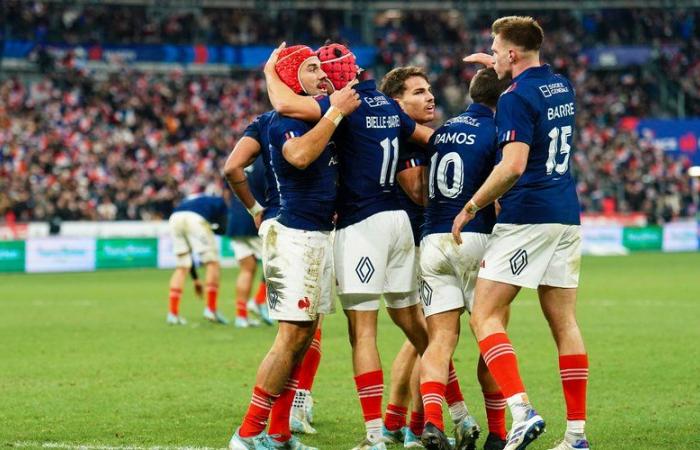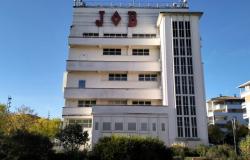
It's already time to take stock and, regarding this autumn 2024 tour pompously renamed “Autumn Nations Series”, we will therefore mainly remember positives for French rugby. Lots of positives, even. It was necessary, to conclude an annual cycle which will have been largely plastered in grayness, since the quarter-final of the World Cup abandoned for a point to South Africa (29-28), then the 6 Nations Tournament 2024 and the Irish rouste, the Italian shame; the torments of the Argentinian summer, finally, where we talked clearly more about news items than about rugby. In short, the bitch.
This page has just closed with smiles, this Friday at the Stade de France, with a third consecutive victory. An autumn “grand slam” which will definitely remain embodied by the success against New Zealand (30-29). The Blues, it’s a fact, are indeed back. That's good and it's a relief, especially since the sequence will have offered a lot of lessons.
Two observations: on the game, the “Galthié 2” mandate project is still struggling to assert its developments, its new identity – which does not prevent victory. This fall, we will have seen these Blues mainly leave possession to the opponent, use the kicking game even more and sometimes much more (34 to 20 against Japan, 23 to 16 against New Zealand) and take refuge in this rugby of “dispossession” that he masters, as soon as adversity becomes suffocating.
This was obvious against the All Blacks: stifled by the collective speed and long sequences of the New Zealanders, the Blues found salvation in the second half with lightning actions – their trademark. Defend hard, push the opponent to make a mistake, then punish by proceeding with counterattacks, taking advantage of a few explosive profiles: the power of Meafou or Boudehent, the explosiveness of Bielle-Biarrey or Mauvaka, the glance of Dupont or Ramos to exploit every recovery ball. It's good and it wins. So much the better. Will it win for another three years? We must hope…
The other observation is that of men and their management. This is not so common, under the leadership of Fabien Galthié, and it should therefore be noted: these three international matches were the occasion of several upheavals in the position hierarchies, which the coach had generally frozen during his first four years in office.
All this plays out on the altar of freshness, or rather regeneration. This is one of the main problems that the coach highlighted in his diagnosis of the failure at the last World Cup. The excessive state of wear and tear of its troops and, therefore, the imperative to better preserve them in the future. What he strives to do here, with a double virtue: by relieving his less young players of a few matches, he grants them these breaths which are good for their heads and bodies. It also opens the door to other new players who find the opportunity to show themselves to swell the ranks of the “France club”. And at the same time maintain an emulation that was so lacking during the first mandate.
France





